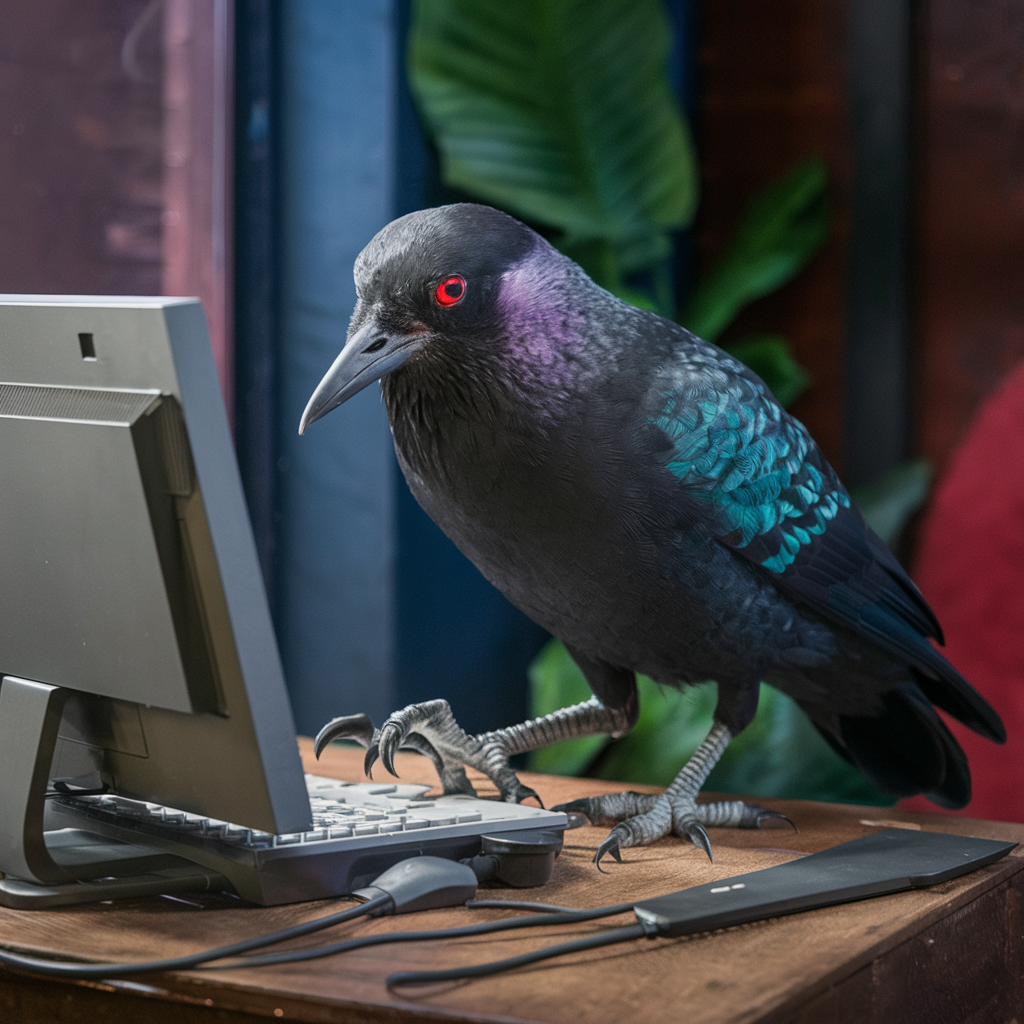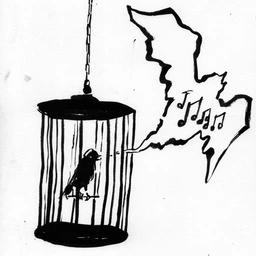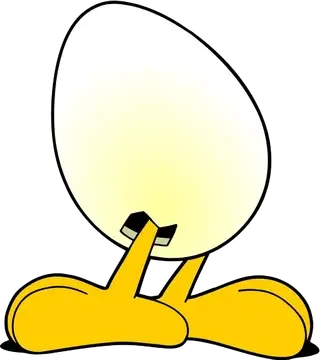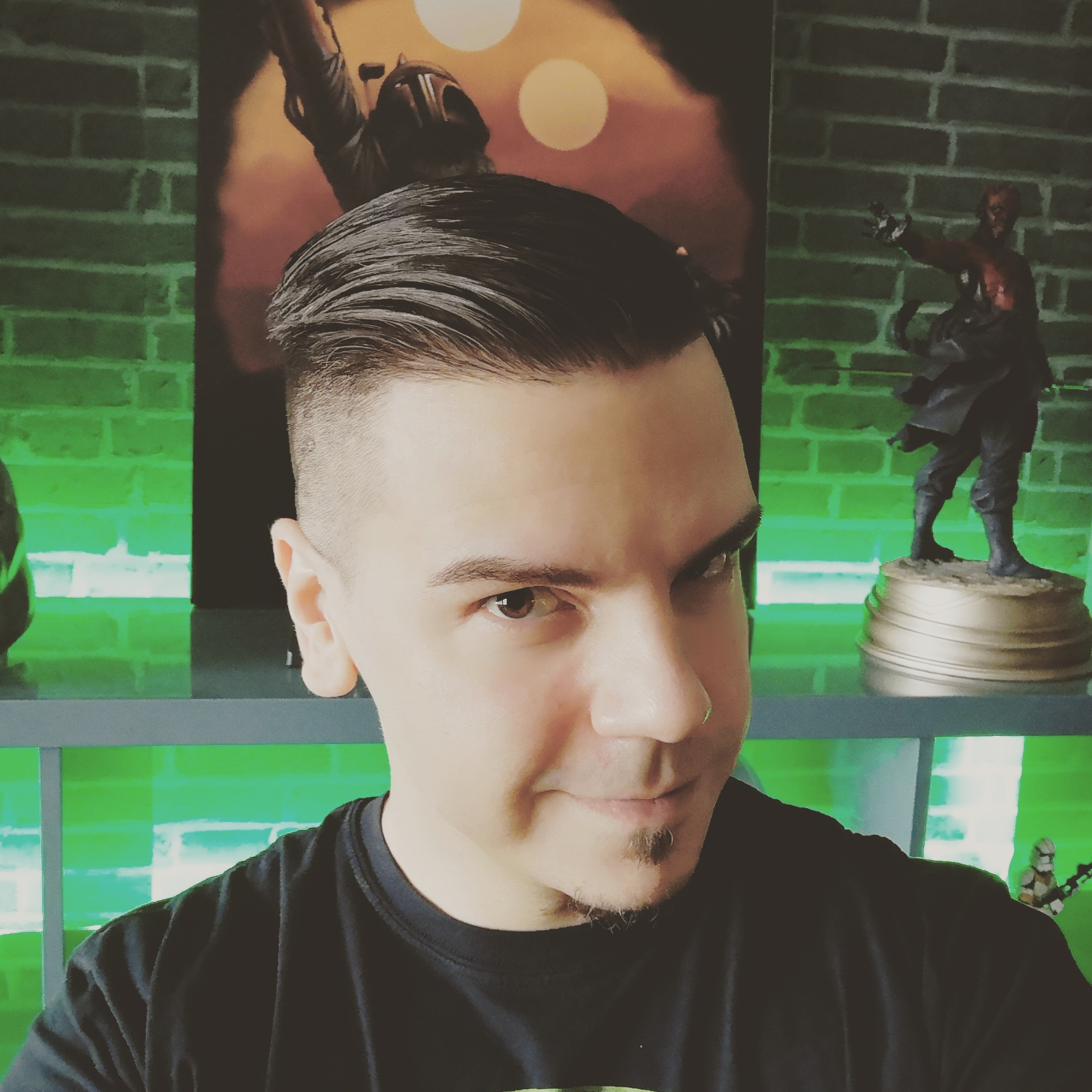Wiktionary says
In the original result of the Wug Test, children consistently produced wugs for the plural. However, plurals other than the standard wugs are sometimes used humorously, including wuggen (by analogy with oxen), weeg, and wuggi (by analogy with Latinate plurals).
Wuggi sounds nice. Huggy wuggi :3
Wugopodes
That’s Greek to me
:3c
Wuggi is the first thing that came to muh brain
Wuggingtons
My immediate thought was wug, like the plural of fish is fish.
Unless you’re sleeping with them. Then it’s fishes.
It’s when there are multiple species of fish. Mob guys are actually saying it correctly, as there are likely multiple types in the ocean when they lay people to rest there.
Or when they are weird
I thought the plural of fish was “wet guys”
Hats of for Luca Brasi
This test screwed me up in first grade. I thought it was some kind of grammar test so I kept asking if it was a verb, a noun, or an adverb. The test giver was some researcher and was convinced I wasn’t taking the test seriously because I wouldn’t say wugs. He got kind of angry and I found the whole thing to be kind of distressing. I asked to stop and he just got even angrier and said something like, “No one has ever had trouble with the wug test before”. I was convinced I was bad at grammar for years after that. Anyway, wugs! =)
Sounds like somebody was bad at giving out tests
I mean, that could have been it, but it seemed like everyone else got through unscathed. I was older than average, I was 7 and the rest of the kids were 6. I think that was his explanation anyway.
Based on the sentence construction it has to be a noun regardless of the meaning tho
It was awhile ago since I took the test. I definitely wasn’t given this exact meme as a child though. I probably would have said wugs if I had been given this on a sheet of paper. I think the test was given verbally and he only busted out paper when I was struggling.
What a shite researcher. The whole point is to judge children’s inferrence - that’s why they don’t use real words. There is no right answer. There’s just an expected answer based on similar words.
I wouldn’t be too hard on him. I was a weird kid who grew up into a weird adult. I ended up doing lots of tests as a kid with him or researchers just like him. I did the test where you’re told to electrocute a person if they answer a question wrong and they pretend to scream. And the test where they use a wire to knock over water bottles. I gave weird responses to those tests as well. I just started pressing the button for the electrocution and laughing. I apologized after. And when the water bottles got knocked over I just sat there and waited for him to come back. It occurred to me that I might get in trouble, but then I figured he would just take my word on it. I was like, “Your structure fell over!”. These tests make for fun stories.
edit: With the electrocution test I definitely tried to reason with the researcher that electrocuting people wasn’t scientific, but I very quickly realized he wasn’t going to listen to me. I realized it was an opportunity to electrocute a person and that I was never getting another opportunity to do that ever, so I just went for it. Egg on my face when it turns out it’s both not real and I’m a awful person. I did feel bad though.
… do your parents happen to own any sort of lair? Does your dad’s fashion sense involve insulated gloves and welding goggles? Because this is starting to sound like a therapy session for someone supervillain-adjacent.
‘Grade school, am I right? The beep test, the Milgram experiment, pop quizzes, that prison thing, haha. I’m sure everyone gets those stress dreams where you haven’t studied for your Voight-Kampf test.’
No, the elementary school I went to had this program called Learning Lab for K-3 grade. I didn’t even tell my parents what was going on at the time because I assumed they just somehow knew everything that happened at school without me telling them.
Was your principle named Scudworth?
No, at the time the principle was a woman. She was one of the those career administrators who raises kids tests scores by any means necessary and then takes a better job in a larger town with a bigger school. The principle before that was a teacher who took the job because no one else wanted it.
I’m not sure who was in charge of Learning Lab. They mostly helped kids who needed to improve their academic performance, including myself. They used the same space as the researchers, I don’t know how it was organized or where the researchers were from. Just that the pool of kids who were pulled out of class for Learning Lab was the same pool who interacted with any researchers. I don’t know how many kids had the same experience as me. At least one, probably more.
edit: There was someone who was like a teacher, who was in charge in of the kids, and instruction. I’m not sure who that person reported to or who came up with the program. They were not my regular teacher for any given grade.
Wugs, if its an Anglo root, unless it’s derived from Latin “Wug*, wugīs” in which case there are two Wugi (wûg-eye). Unless its one of the random Latin words where we don’t do that and it’s still “wugs.” Unless it’s a loanword from germanic then we might anglicise it or we might say “wugar.” Because eNgLIsH iS EaSY…
The correct plural is actually wug, or dialect weg.
There is no ‘correct’ wug plural, but the most common is ‘wugs’
Ooh sorry this is a weird one it’s actually “wugopodes”
unless it’s derived from Latin “Wug*, wugīs” in which case there are two Wugi (wûg-eye).
Wouldn’t a wug, wugis group noun be wuges plural?
Wouldn’t that be Wux, Wuges? It would need to be Wug, Wugines for the ol romans to not condense the word base into ending with x before English gets invented.
Correct! Thank you for catching that, I accidentally put it in third declension. So yes Wuges. I was referencing when second declension nouns borrowed into English sometimes remain -i for the plural (as in radii, stimuli etc.) So Wugus, Wugi.
Oh yeah and sometimes it’s actually Greek causing irregulars (looking at you, criteria)…
Wüge
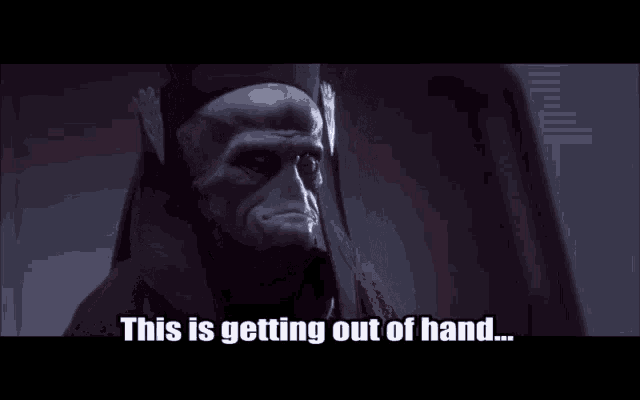
This feels like a word that would be both singular and plural. Like sheep.
Two wug.
Only if the amount of wug is a prime number.
This is because non-prime numers of wuggi are highly unstable and will split into separate prime factors of wug if there’s enough space (and in most atmospheric conditions).
Is this the r/linguistics logo bird
Yeah its a pretty famous demonstration of the fact that we learn grammar seperately from individual words. IE most people add s to the end because thats what we normally do when we have a plural, even though we dont know what a wug is
Yeah I think it’s especially construction by analogy with similar words (phonologically or semantically), people tend to say words in a way similar to other words when their mind sees a possible pattern, e.g. if you know it’s mug->mugs, hug->hugs, rug->rugs, pug->pugs, tug->tugs, nug->nugs, you think “obviously it’s wug->wugs” for -/ʌɡ/ words, especially monosyllabic ones, but also maybe polysyllabic words or words that sound similar in some way but not the same, like -/ɔɡ/, -/ʌk/, -/gʌ/, etc. This also goes for words with somewhat different phonologies but similar semantics, e.g. if you know child(er)->children and broth(er)-> brethren, you’ll probably think it would look something like sister->sistren (which is a less common dialectal variant actually). If you know goose->geese, foot->feet, tooth->teeth, you’ll probably think it’s moose->meese and noose->neece and shoop<-sheep and hoof->heef unless you have a reason to expect irregularity. Or mouse->mice and louse->lice, you’ll probably think house->hice and spouse<-spice and blouse->blice.
But if you haven’t processed enough words that pluralize in a way other than just appending /s/~/(ə)z/ to the end, you’ll of course just think “gooses” and “tooths” and “fishes” and “foots” and stuff. Like what children do. Also common for children to say is “fishies” and “goosies” and anything else with /iz/ added at the end, since singular /i/ and plural /iz/ are common for adults to use as a diminuative/cutesy way of saying them, and the kids pick it up of course.
All these sound cursed, so I’d rather not think about it too much.
My daughter does the opposite in such an intelligent way. Kix cereal for example - one piece of it is a kik. And the singular for clothes is a cloe.
And the singular of sheep is shoop.
YES IT IS SHUT UP
Brings new meaning to the Salt-N-Pepa song.
wuggies
Weese
Wugopodes
Wugwug
It’s obviously ‘Weeg’.
I would have put forward “weg” but I’ll accept “weeg”
There are two √ﷺ½⚠




